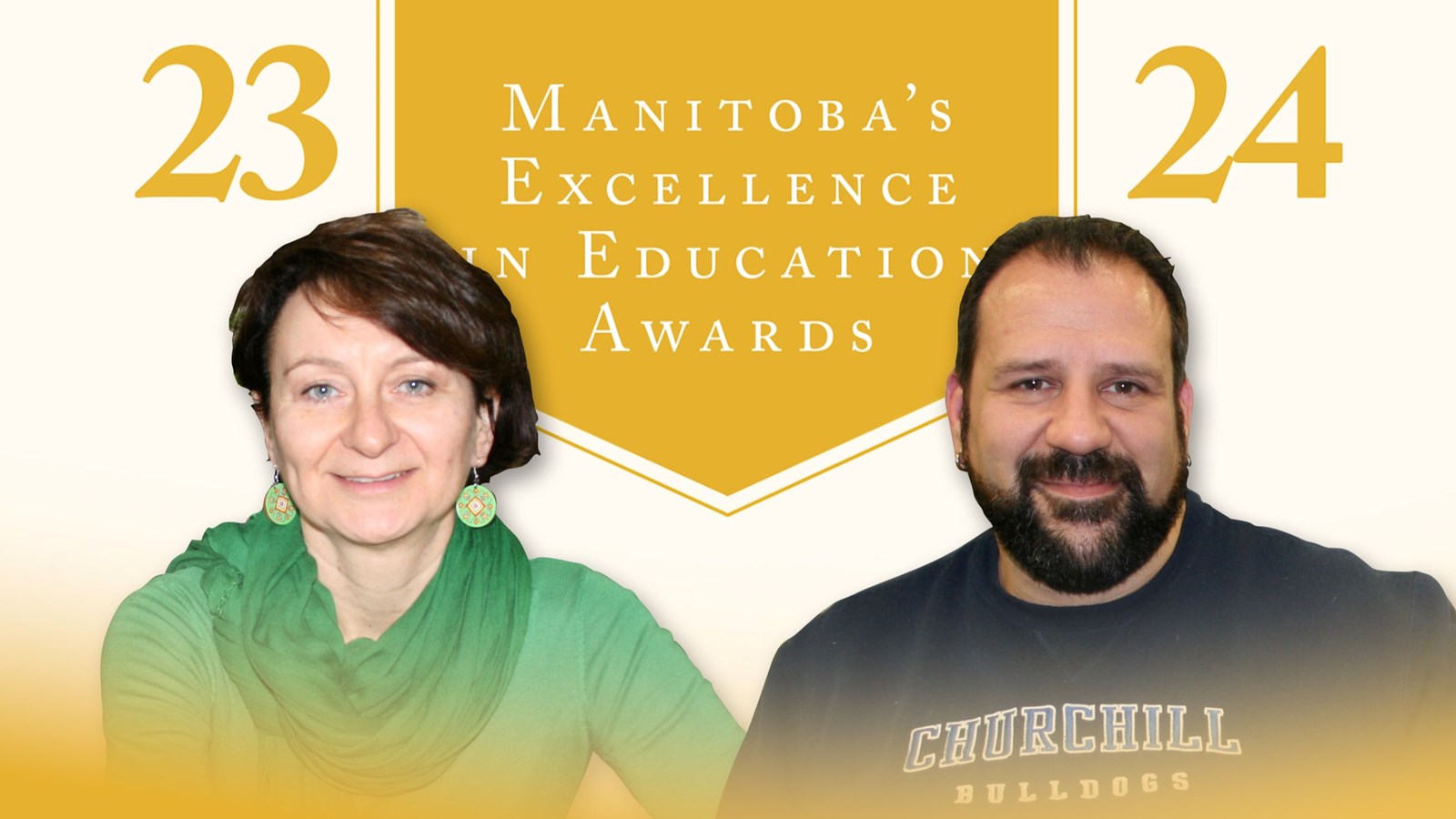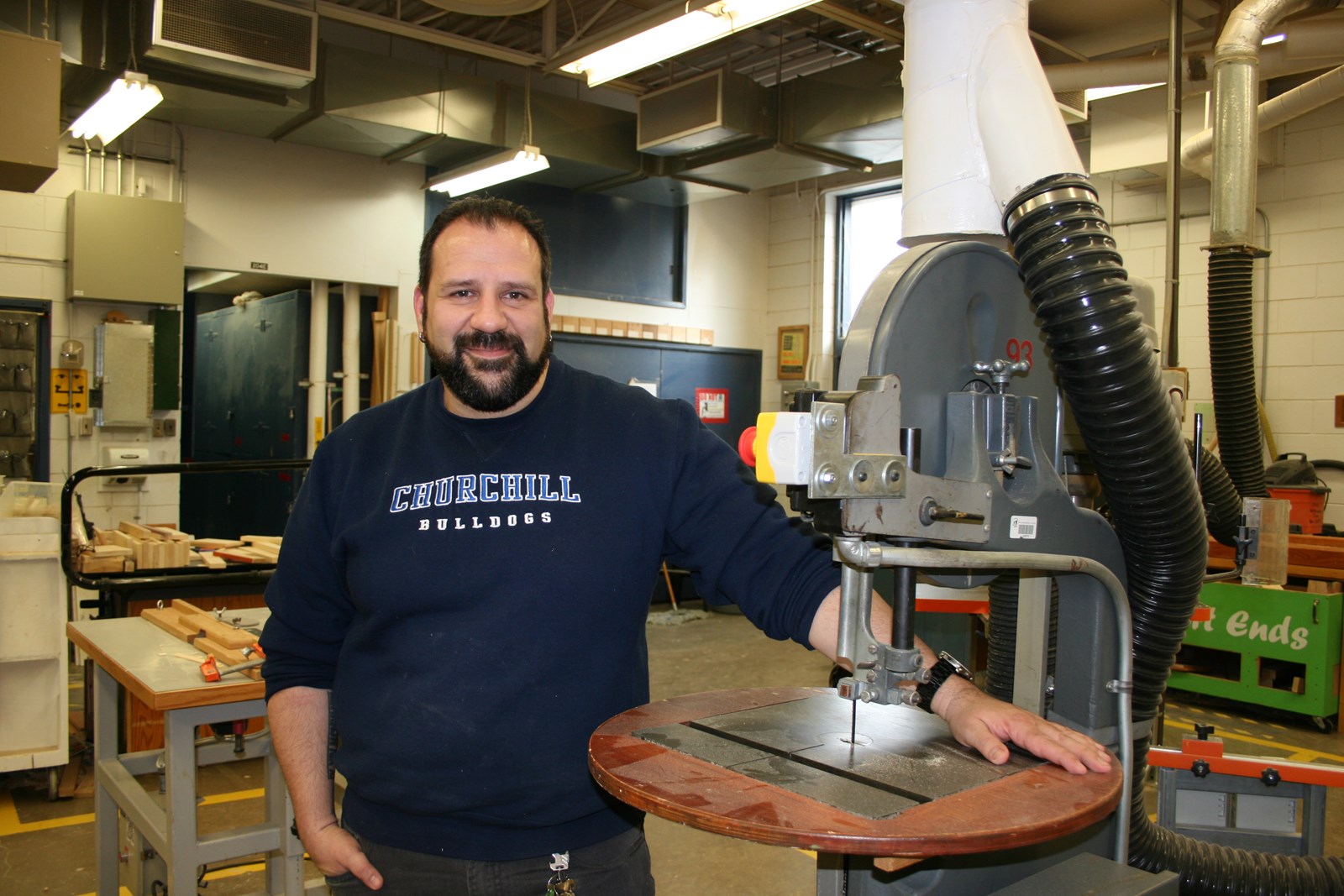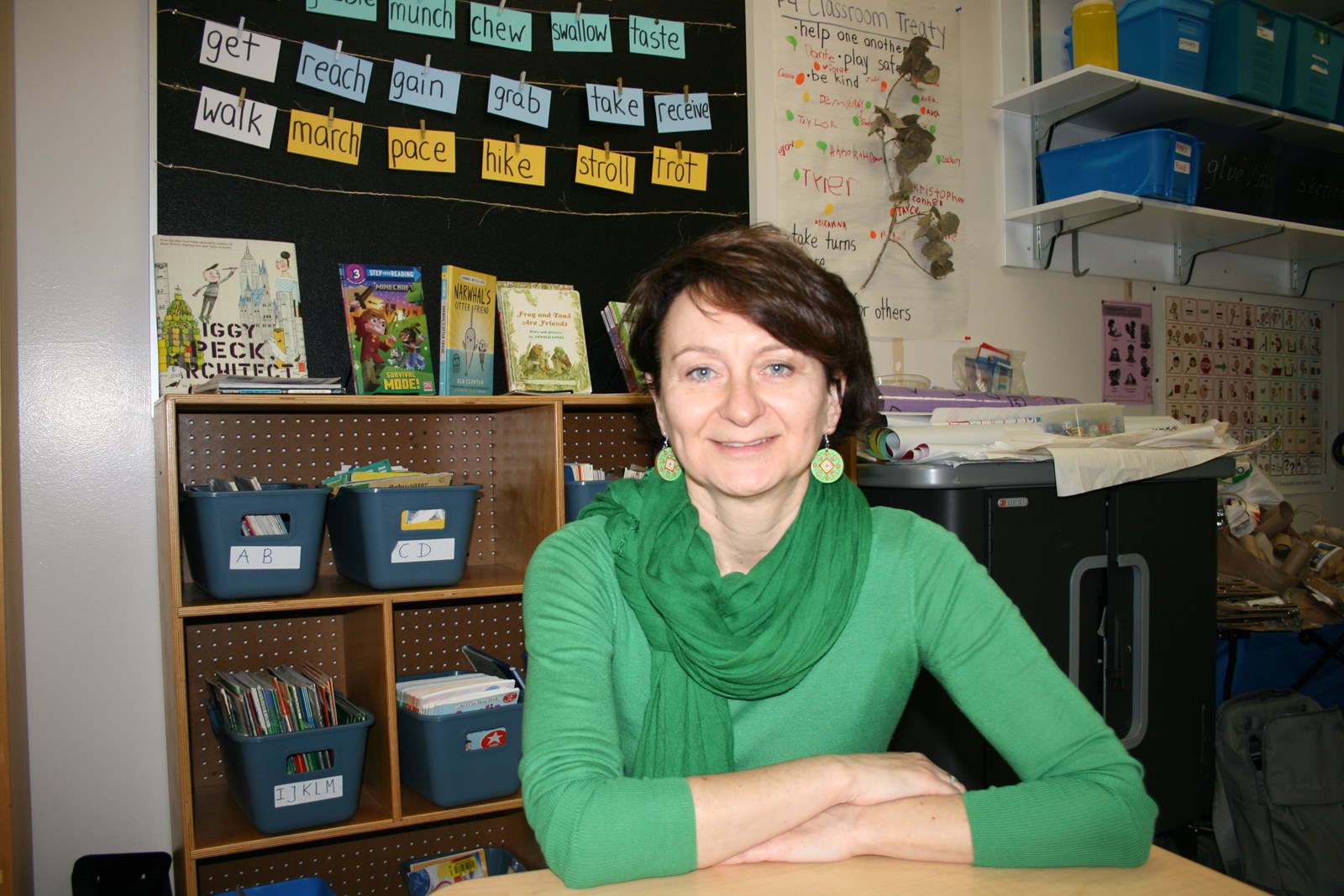WSD educators strive for excellence
April 22, 2024 Announcement, News Story
Two WSD teachers were recognized as exceptional educators at the 2024 Manitoba’s Excellence in Education Awards.
Saul Correia from Churchill High School and Mira Demko from Ralph Brown School each received the Teaching Excellence Award during a reception held at the Manitoba Legislative Building on April 19.
The award is presented to teachers who “demonstrate exemplary professional practices and an exceptional ability to inspire students and colleagues”, according to the province.
Correia has been inspiring Churchill students and staff for over two decades. The industrial arts teacher enjoys coming to work everyday, so much so that he finds his summer break to be “too long.”
“I genuinely love what I do,” Correia said. “A running joke around here is when people see me in the morning and ask how I’m doing, I’ve had the same answer for the past 23 years: Living the dream.”
“They laugh, but it’s true. I like being a part of this school. I have students whose older siblings have come through here. I even have students who I taught their parents. Some teachers like to move around to different schools every few years to keep it fresh, but I love ingraining myself into the whole community.”
Correia’s community-minded approach is evident in many of his student’s woodworking projects. In 2023, he and a group of Grade 10 students spent over 30 hours designing and building shelters for feral cats. The shelters were donated to the Feral Friends Society.
In 2018, Correia and his students partnered with Earth Dog Terrier Rescue of Manitoba to build houses for stray dogs in northern communities.
Over the years, Correia’s students have constructed cutouts of the seven sacred teachings for École Riverview School, helped build an irrigation system for the Riverview Garden Society, and created many set pieces for Churchill’s theatrical productions.
Whenever possible, Correia prefers to use recycled or reclaimed materials for his class projects.
“I really want students to know that this isn’t just a throwaway society, where if something doesn’t work anymore, you throw it away and buy something new,” Correia said.
“That’s doesn’t help with sustainability, and it doesn’t help with affordability either. I want my students to gain some real-world practical skills to make them more independent and self-sustainable.”
Demko teaches Grades 1, 2 and 3 at Ralph Brown and has taught in WSD for 11 years. A Polish immigrant, Demko worked as a special education teacher in Warsaw for 14 years.
Demko describes her teaching style as “student-driven”. She takes the time to listen to what her students are interested in and connects those interests to the curriculum.
“I want them to be curious and I want them to learn through play and discovery,” Demko said. “For example, in February, my students came in from outside and said, ‘Ms. Demko, we saw a woodpecker!’ They were super excited, so I thought, ‘It’s time to change my lesson plan.’
“We learned everything we could about woodpeckers, connecting our learning to math, science, reading and writing. The fun part is I’m learning with them. Their learning is also my journey of learning.”
Demko is a big fan of nature-based learning. She grew up in Kruklanki, a village in northern Poland located near a lake and a forest. As a child, she’d spend whole days outdoors, only returning home at dark.
“Nature gives us all the information of the world. We’re spending a lot of time indoors nowadays, not just children, but also adults,” Demko said.
“We know being outdoors has benefits in terms of our health and wellbeing. There are so many positive learning outcomes from going outside or even bringing the outdoors indoors. Last year, my students and I found a gigantic eight-foot branch. We brought it to the school, we investigated it, we measured it, we learned about the kind of tree it came from, and then we learned about pollinators.”
Demko also plants vegetables with her students in the school’s garden and recently started a classroom compost program, with plans to expand it throughout the school and to give away compost to gardeners in the community.
She also started a before-school coding club, where students use Tale-Bots to learn basic coding concepts and are provided a healthy snack. The club also serves as a creative way to get students to school on time.
Whether it’s in the classroom or outside, Demko said she’s inspired daily by her students.
“When we go outside and they notice things, I love to hear them go ‘Oh wow!’ and I love to hear their questions,” she said. “Teaching Grades 1 to 3 is really terrific in terms of seeing their growth. In Grade 1, they might not really know what a question is, but by Grade 3 they’re asking open-ended questions like: How does this work? How did this happen? Who did this? Why?”
“Watching their transformation, their growth, gives me drive.”


